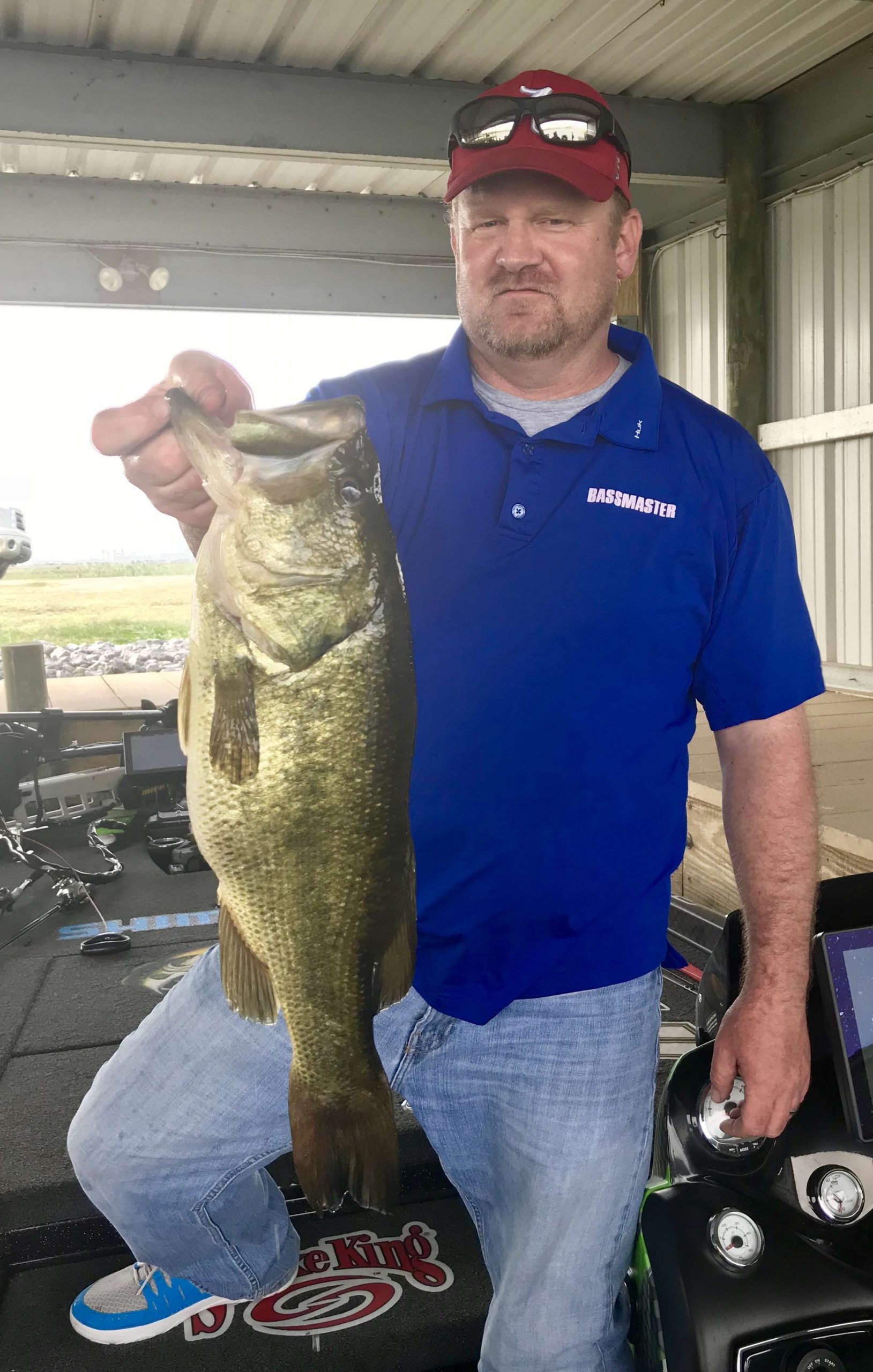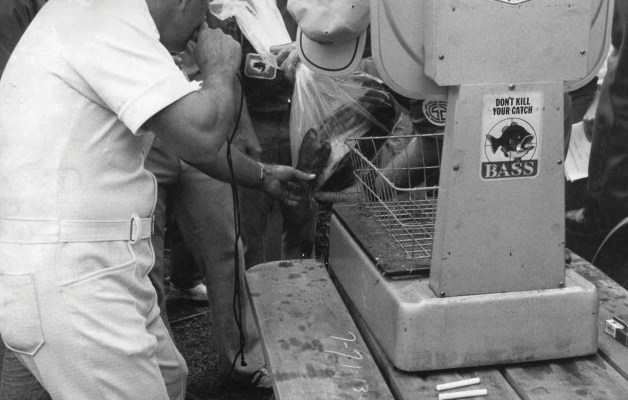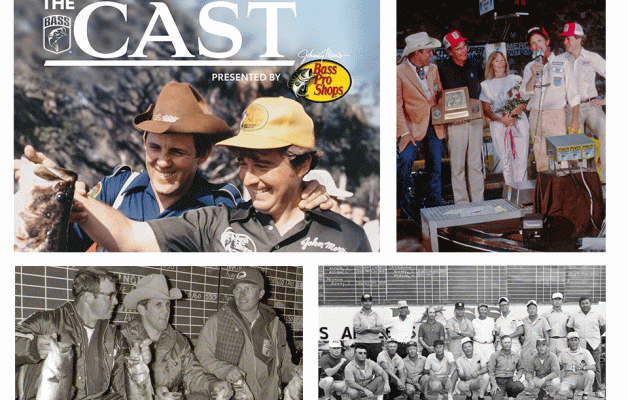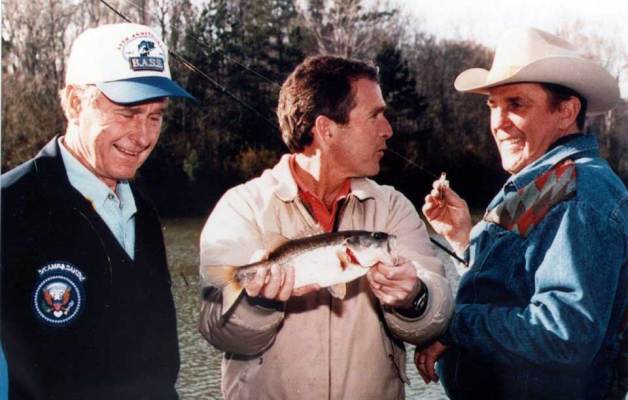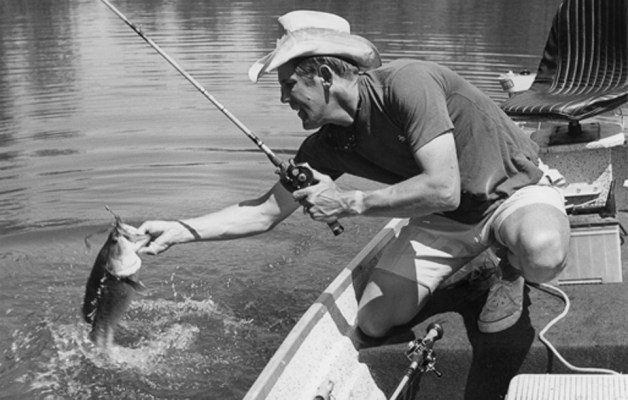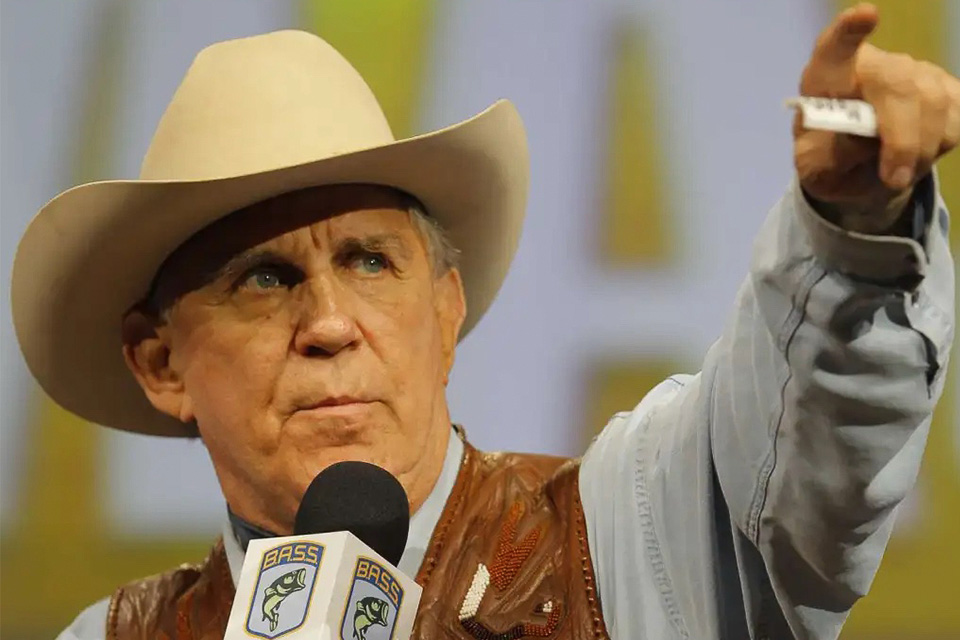
I met Ray Scott for the first time on May 8, 1996, just before the opening-round weigh-in of the Bassmaster Top 100 event on Alabama’s Neely Henry Lake.
I was a scrawny kid, about 5-10 and somewhere between 148 and 150 pounds depending on whether I was wearing a T-shirt or a sweatshirt.
And Ray was … Ray.
Not only was he built like an NFL defensive end, he had the persona to match. His booming voice, unmistakable presence and the magnetic glow that seemed to form a 10-foot circle around him had made him a megastar in my mind for years.
I was a young journalist and a devoted pro fishing fan, and he was the Michael Jordan of the sport.
Then suddenly, there he was.
I walked into the interview area with my little press pass from The Birmingham News and Ray saw me immediately.
I thought for a second he might be coming to throw me out, the way he stalked toward me with that giant frame.
But he stopped just short of me and asked, “Are you Bryan?”
My mentor at The News, Mike Bolton, knew Ray well and had told him I would be coming to cover the tournament. Once Ray was sure it was me, he grabbed me by the arm — his hand wrapping completely around what passed for my bicep back then — and said, “Come with me.”
It felt kind of like I was being dragged to the principal’s office. But instead, he took me inside the Bassmaster media trailer, which was hallowed ground for a kid like me back then.
Inside, he introduced me to Bassmaster senior writer Tim Tucker — a star in those days who’s now in the Bass Fishing Hall of Fame — and communications whiz Ann Lewis.
Then Ray said something I’ll never forget.
Still holding me tightly by the arm, he looked at Tim and Ann and said, “This is Bryan Brasher. He’s here from the Birmingham paper, and he’s gonna do a tremendous job for us. I want you two to make sure he has everything he needs — all week long.”
In my life, I’ve rarely experienced a shift in emotions like that one. In an instant, I went from being awestruck by my surroundings and the characters who inhabited them to feeling like the most important guy in that incredible mix.
I wasn’t, for sure.
But with about three sentences, Ray could make you feel that way.
He was a man with many gifts.
He was a visionary who peered into the future from the late 1960s and saw what professional fishing could be today.
He was the most talented salesman I’ve ever known. I once wrote in a column for The Columbus Ledger-Enquirer that, “If you’re ever wandering through the desert, sunburned and dying of thirst, and you run across Ray Scott selling space heaters and hot coffee, you better not stop. He’s made tougher sales than that before.”
But of all his gifts, I think his ability to make you feel like the most important person in the room might have helped his cause the most.
That gift wasn’t reserved for members of the media.
He used it to bring mind-blowing lists of sponsors to the organization he founded and to the sport as a whole.
He used it to encourage thousands of fans to pack arenas across the country for Classics. And he used it to make a bunch of old country boys with worn-out boats and makeshift tackle believe they were good enough to turn their weekend passion into a lifelong profession.
It’s a gift that was special back then, but even more so today.
We live in a society where everyone’s first instinct now is to tear someone down. Whether it’s with a column on a website or just a snarky comment on Twitter, knocking someone down a peg — or at least feeling like you did — has never been easier.
So, as we mourn the passing of Ray Scott and look back on all the things he did on his way to building bass fishing into a multibillion-dollar annual industry, I’d also like to celebrate his brilliant human touch.
As people from all walks of life tell stories about how special he was, I’ll be thinking back to that day in 1996 when he made me feel like the special one.

